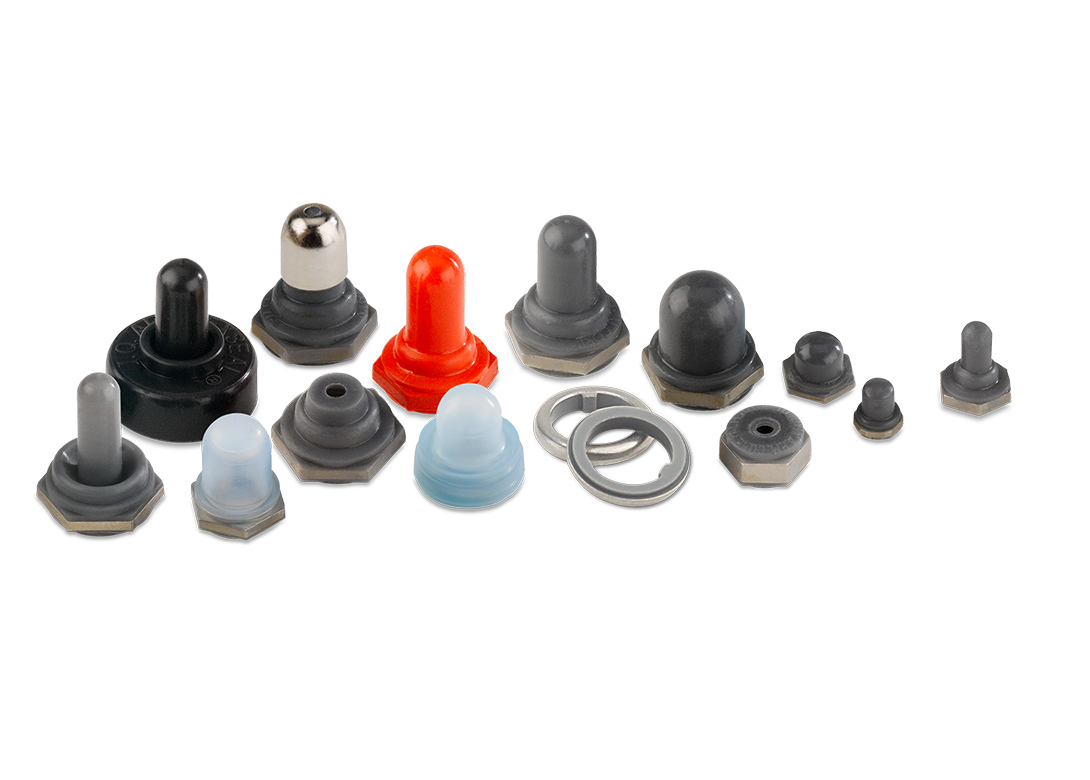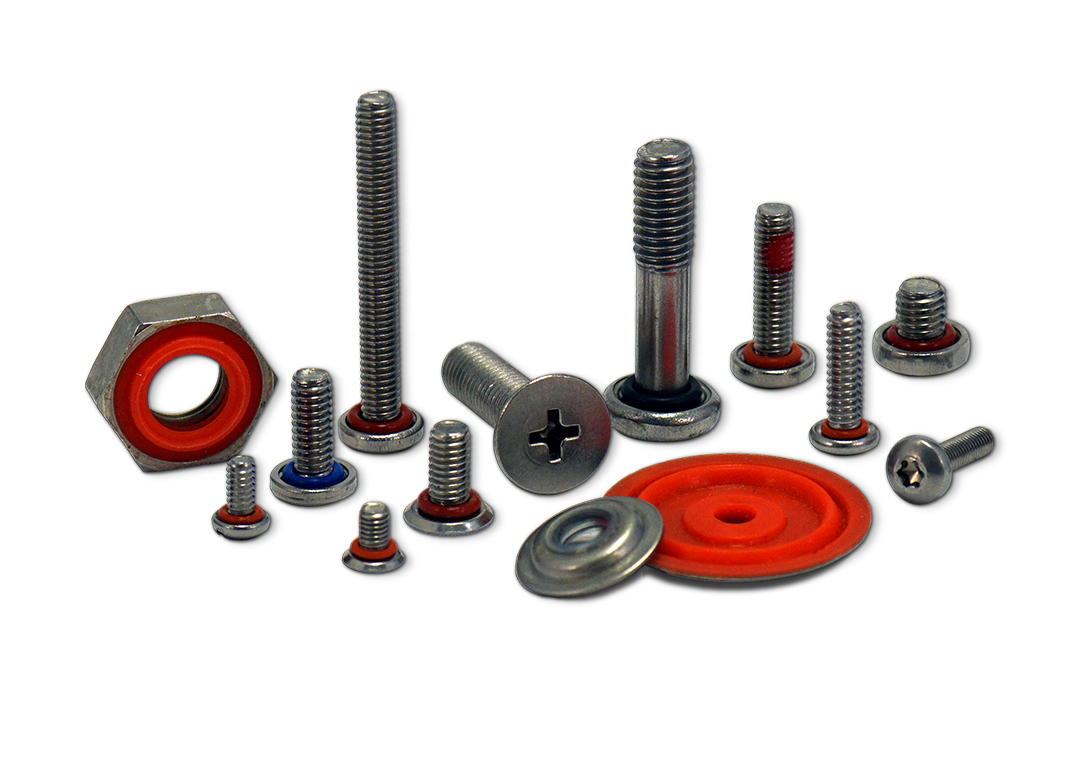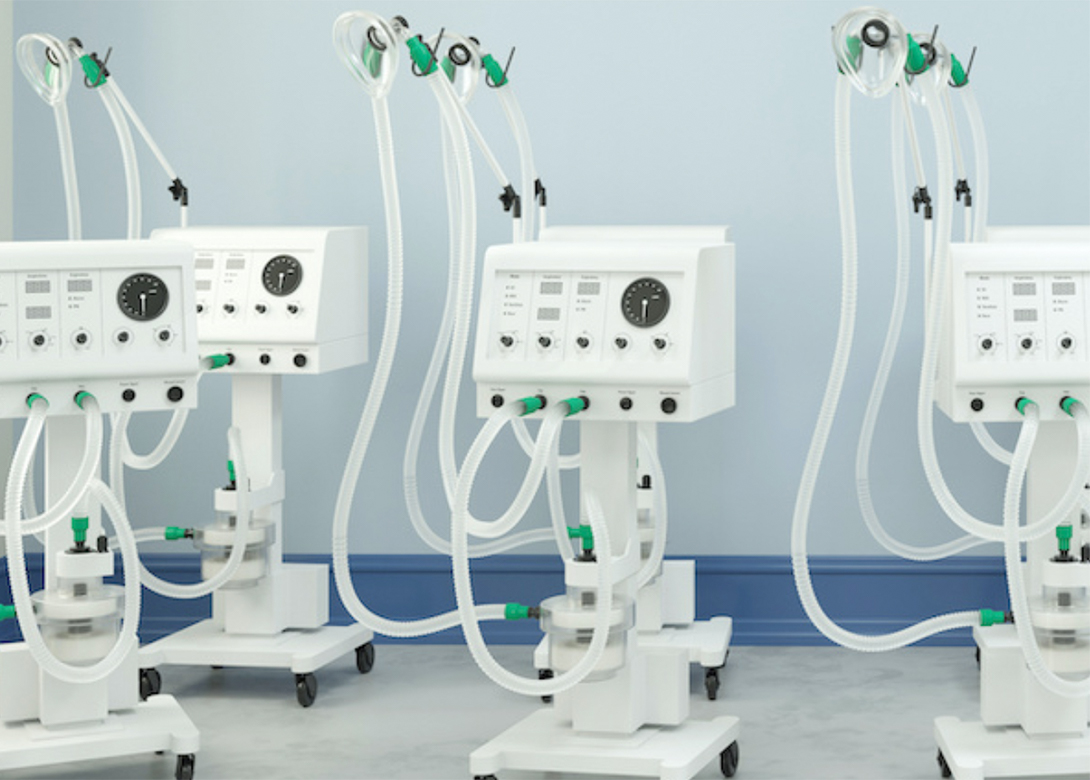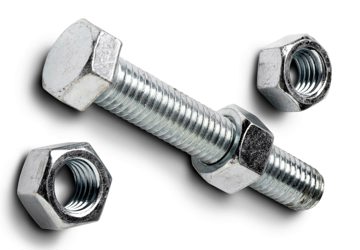

Fasteners such as screws, bolts, nuts, and rivets provide connections for critical components and disparate substrates across industries. Sealing fasteners go a step further by tightly sealing against the substrate, making them particularly useful for high-value and high-intensity situations. The fastener creates a seal that helps to seal in, or seal out, potentially hazardous or damaging elements. Here, APM Hexseal takes a closer look at sealing fasteners – what they are, how they work, and why they’re so crucial.
What are sealing fasteners?
A sealing fastener features an elastomer moulded or built into a specially designed groove or cavity on the hardware, eliminating the need for messy pastes or liquid sealants. The O-ring, or elastomer, is often made of silicone or rubber, but the elastomer choice is application dependent and sometimes requires other materials like Nitrile, Neoprene, Viton or EPDM. The purpose of the O-ring, or elastomer, is to provide a tight and contaminant proof seal once the fastener is installed.

As an operator applies torque to tighten the fastener, the elastomer expands to fill in any gaps between the fastener and the surface. APM Hexseal manufactures numerous highly specialised sealing fasteners, including switch and circuit breaker boots, nuts, bolts, screws, and washers, among others.
Sealing fastener capabilities
A sealing fastener creates a much tighter seal than what is possible with a standard fastener. This seal prevents contaminants like dust, oil, or other liquids from seeping in or out. This capability makes sealing fasteners ideal for sterile environments and operations containing toxic materials and pollution.
The elastomer also provides a better grip for the fastener, ensuring that it doesn’t come loose over time. A quality sealing fastener holds true even in high pressure settings, such as deep underwater or within heavy machinery pressure valves. Overall, a quality sealing fastener should feature good resistances to chemicals, water, temperature shifts, and vibrations, which makes them far superior to traditional fastening hardware.
This makes sealing fasteners the perfect choice for protecting sensitive electronic or mechanical systems that are exposed to hazardous contaminants. They are also a smart choice to guard against corrosion and degradation in industrial or construction projects.
A timely example would be ventilators. Never have we been in a time when the function and reliability of these machines have been more paramount. Imagine a ventilator in a hospital where bacteria and germs are prevalent. The Ventilator must be continually sanitised in order to remain useful and safe for life saving treatments. If not sealed and protected, the switches and components on the ventilator could be damaged by the harsh sanitizing chemicals and could cease to function.
Any equipment that is exposed to potentially damaging elements, such as water, dust, grease, oil or dirt, should be properly sealed to prevent damage, down time and failure. Protecting your sensitive electronics and mechanical systems improves performance, increases longevity and can prevent costly loss of use.
Benefits of using sealing fasteners
Sealing fasteners offer an array of advantages, such as:
- Protecting delicate and vulnerable electronic and mechanical components. Covering the sensitive components prevents damage caused by hazardous contaminants or hostile environments.
- Corrosion resistance.Sealing fasteners get made from corrosion-resistant materials, such as stainless or zinc coated steel.
- The elastomers used to create sealing fasteners won’t break down over time. These fasteners can withstand extreme temperature conditions, ozone, and other harsh environmental factors without becoming brittle or losing integrity.
- Because sealing fasteners protect against the intrusion of moisture and contaminants, they tend to work well in a wide array of commercial, industrial, and consumer applications.
- Time saving. The self-sealing capabilities simplify the installation process and help installers to save time.
- Lower cost of ownership. Sealing fasteners can typically be removed and reused, making them ideal for temporary projects, or equipment that requires frequent access or maintenance. They also last longer in permanent installations, minimising maintenance and replacement costs.
Applications for sealing fasteners
As explained, virtually every industry would benefit from the use of self-sealing fasteners. Any time electronics or mechanics are exposed to weather or other hazardous elements, unless you protect them, you can have a catastrophic failure. APM Hexseal’s products are found in a plethora of applications and industries including aerospace, agriculture, construction, defence, electronics, food and beverage, industrial, infrastructure, lighting, marine, medical, power generation, and renewables.
Sealing fasteners from APM Hexseal
Since 1947, we have been the leader in developing and manufacturing sealing solutions that prolong the life of sensitive electronic and mechanical components and systems in hostile environments. We offer a wide variety of elastomeric switch and circuit breaker covers, and sealing hardware, including a complete line of reusable, self-sealing fasteners. Our product portfolio includes our patented Seelnuts, Seelskrews, Seelbolts and Seeloc washers, along with a full complement of switch boots. From our standard self-sealing fasteners to a full design and manufacturing team ready to assist with custom engineered sealing solutions, we have what you need to maximise performance from every component.
Our fasteners are reusable and have a shelf life of over 25 years, making them a smart economic choice for projects of any size and scope. Need fasteners quickly? Check out the quick quote request on our website to get an immediate estimate for your project. Not sure what kind of fasteners you need? Contact us for help finding the right sealing fastener solution for your specific needs. Cover it. Seal it. Protect it. Ask the Experts at APM Hexseal.


Having spent a decade in the fastener industry experiencing every facet – from steel mills, fastener manufacturers, wholesalers, distributors, as well as machinery builders and plating + coating companies, Claire has developed an in-depth knowledge of all things fasteners.
Alongside visiting numerous companies, exhibitions and conferences around the world, Claire has also interviewed high profile figures – focusing on key topics impacting the sector and making sure readers stay up to date with the latest developments within the industry.





